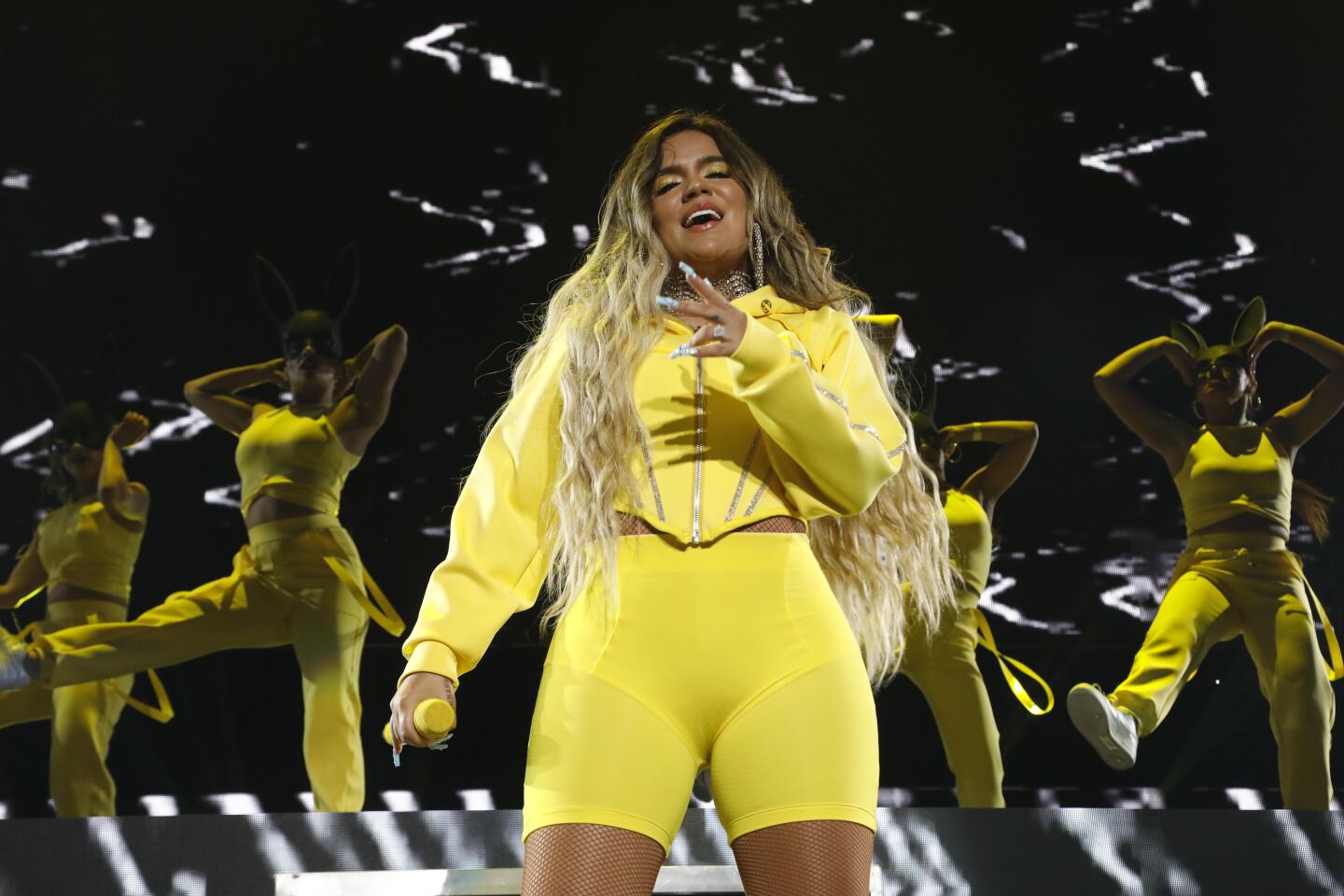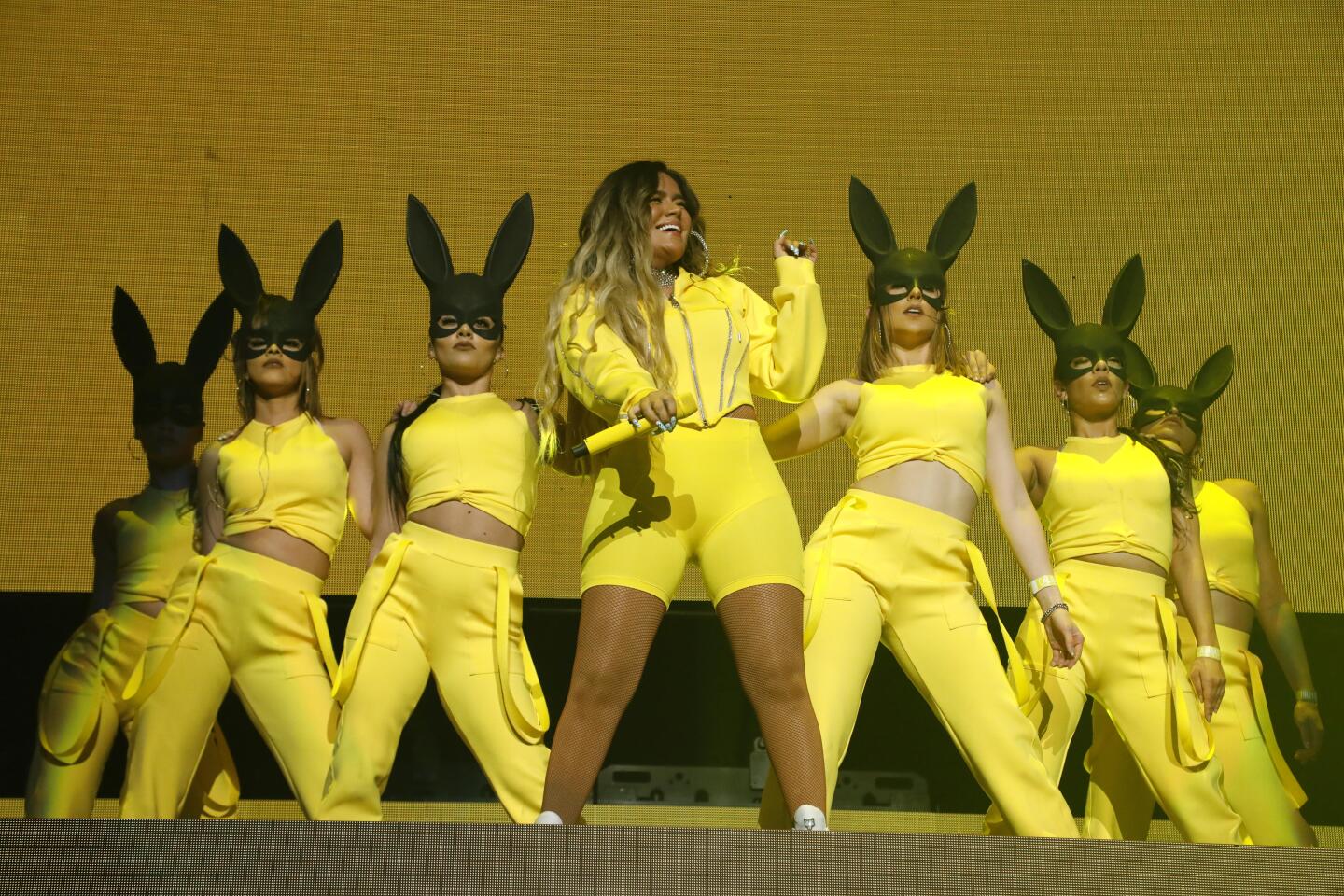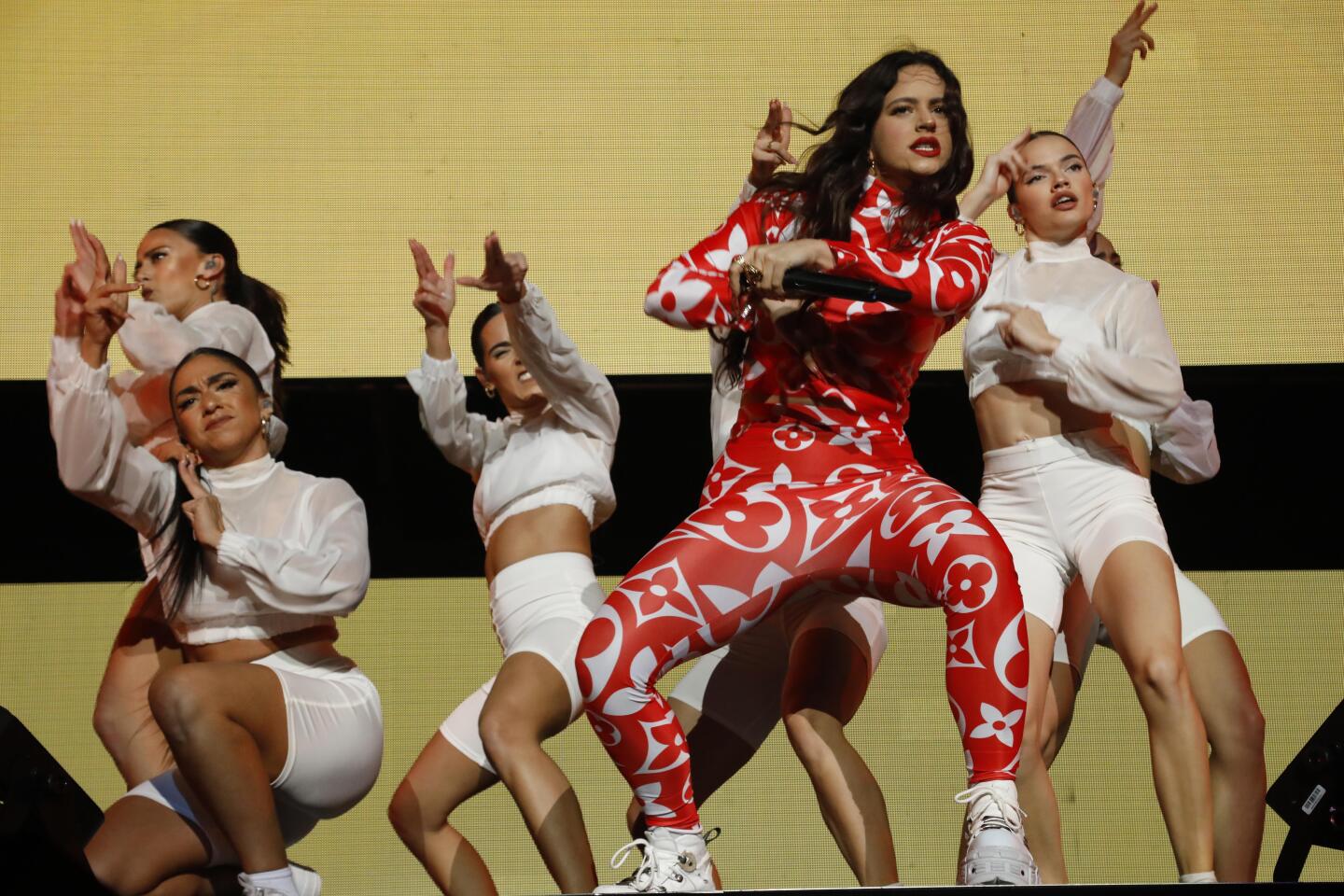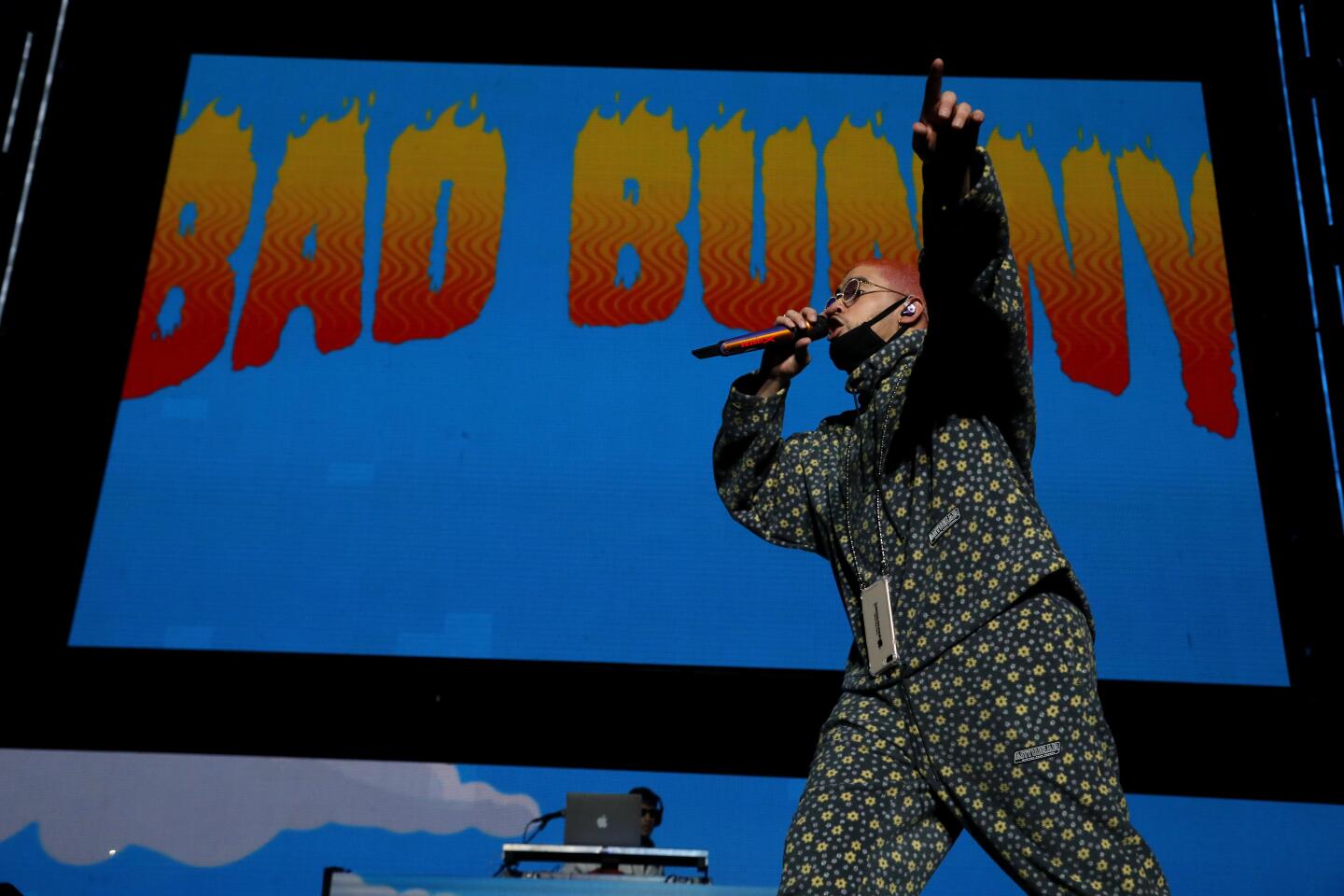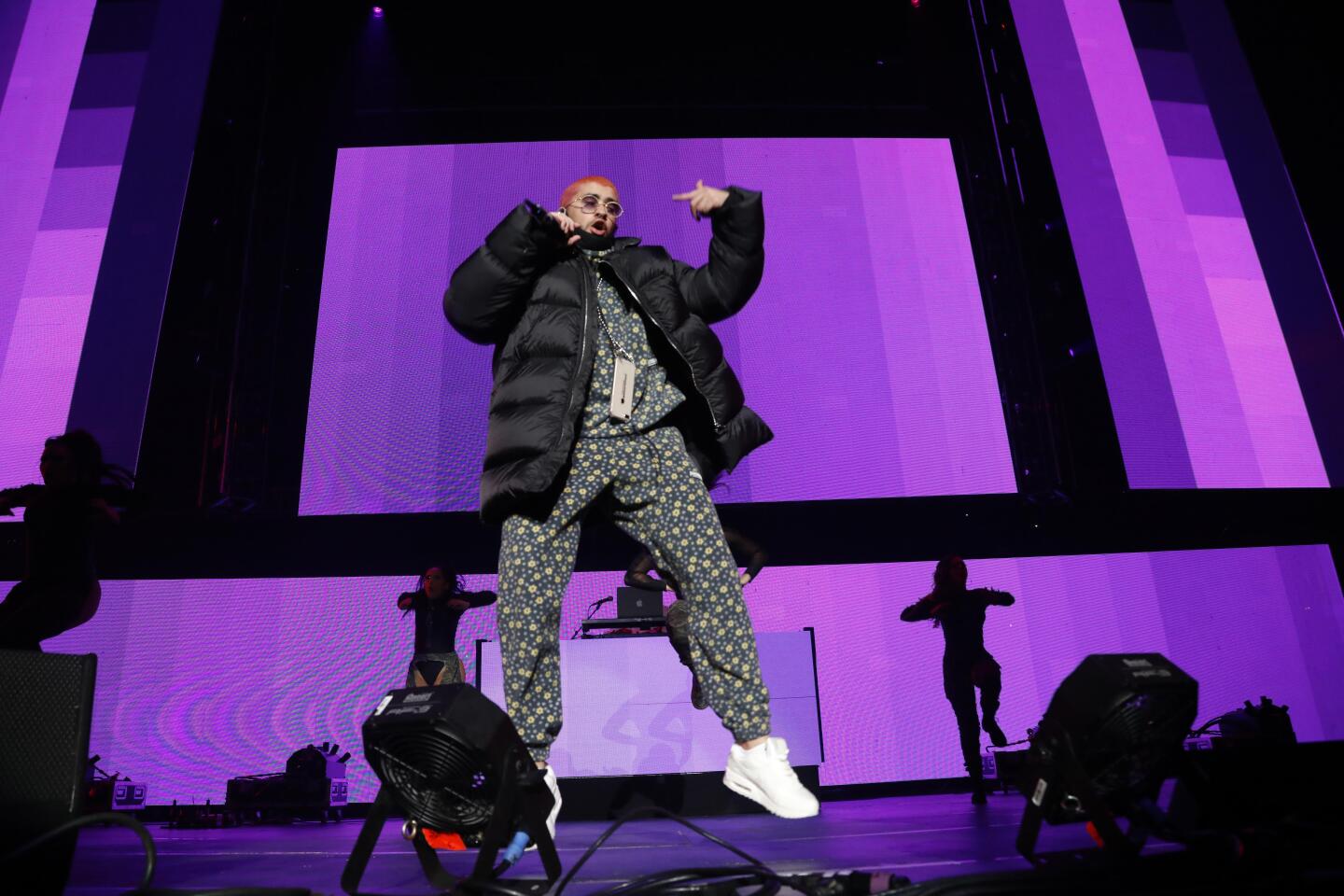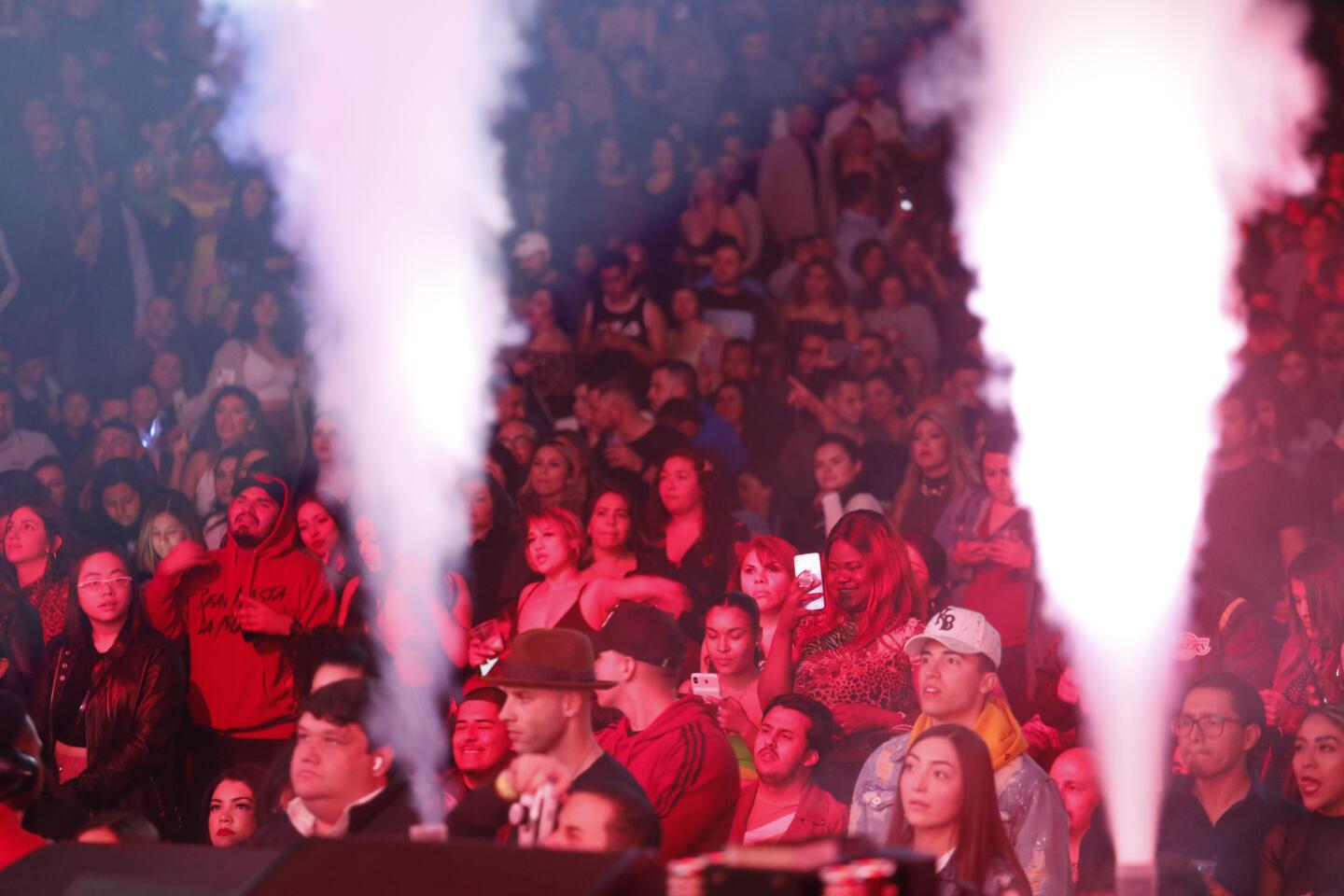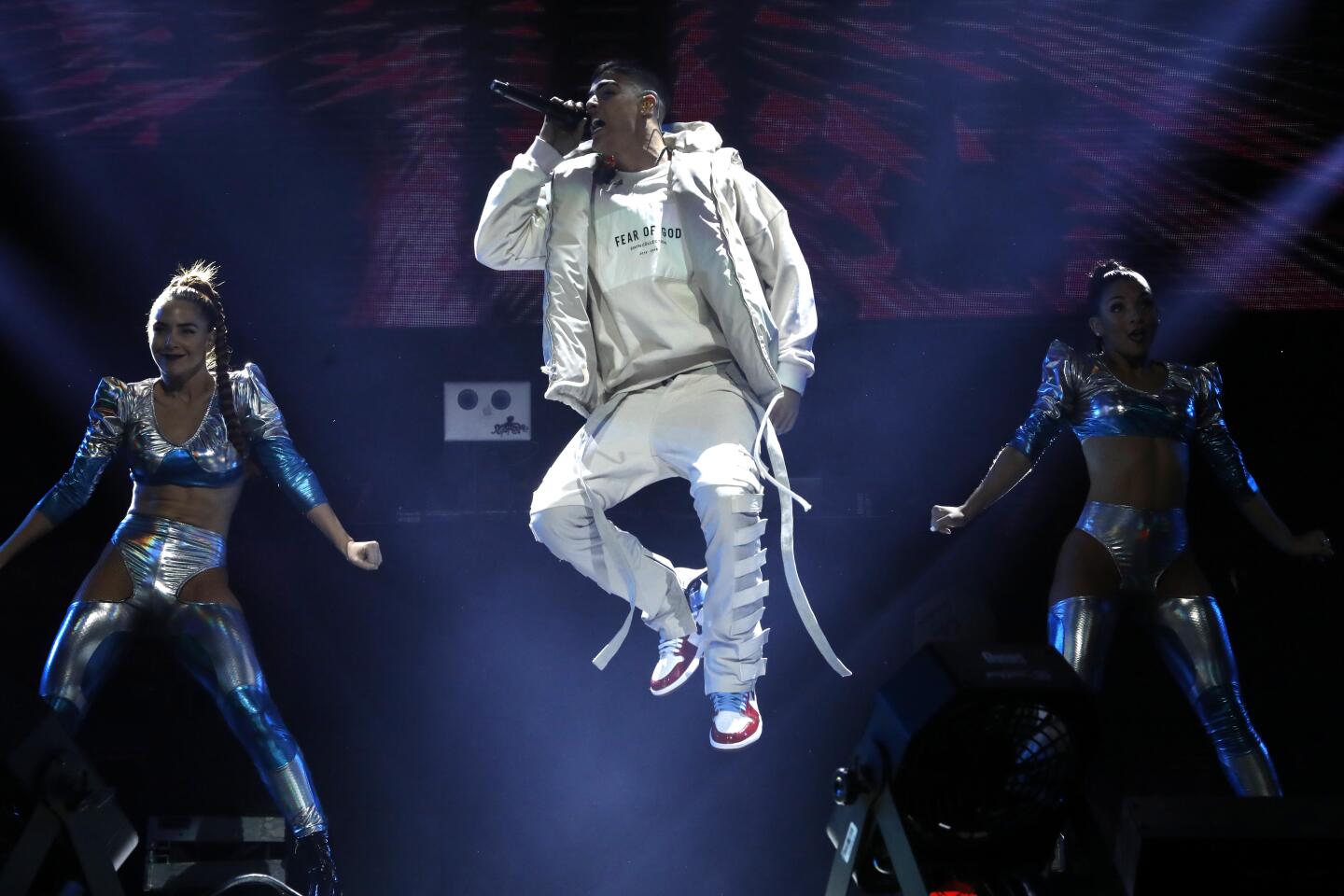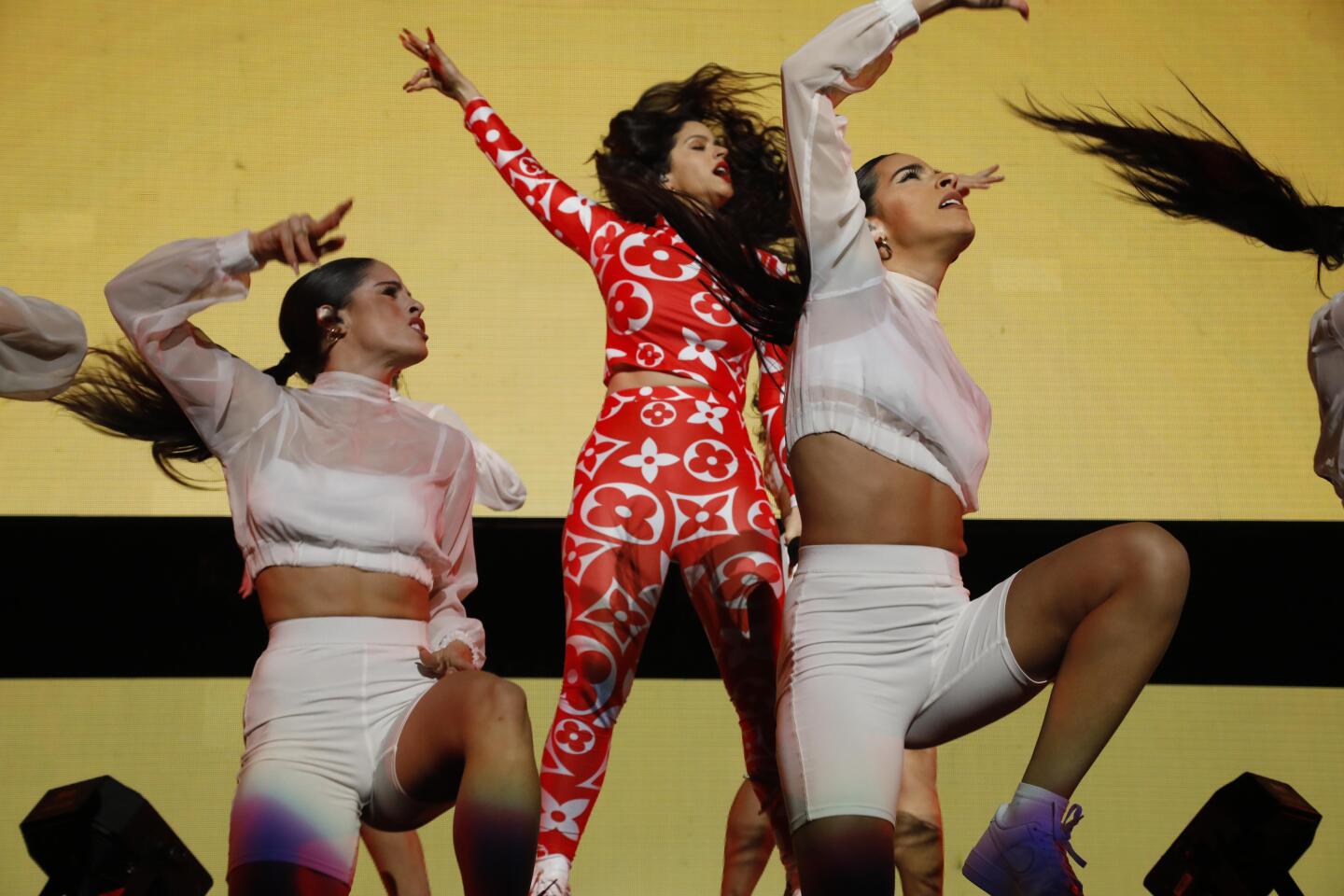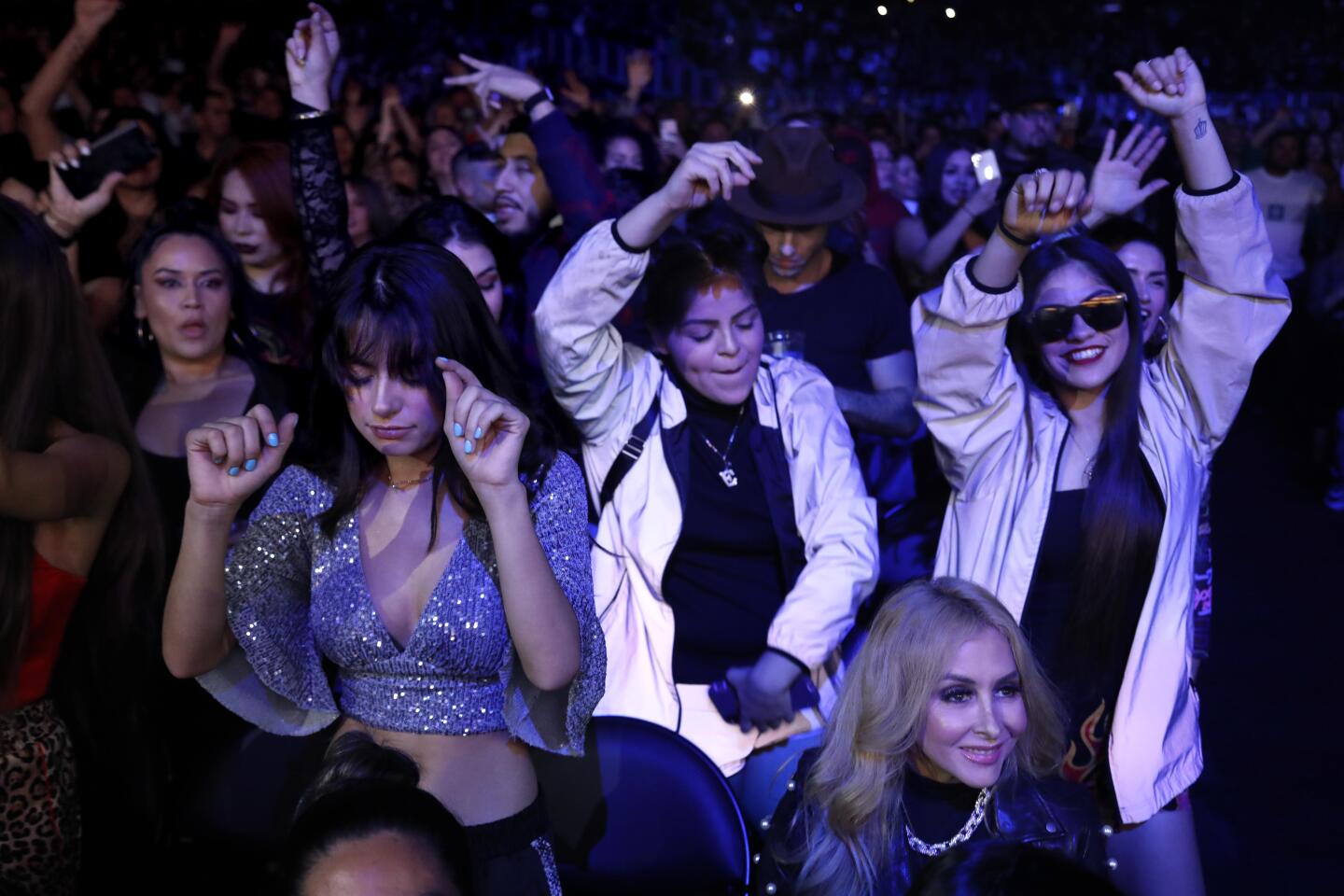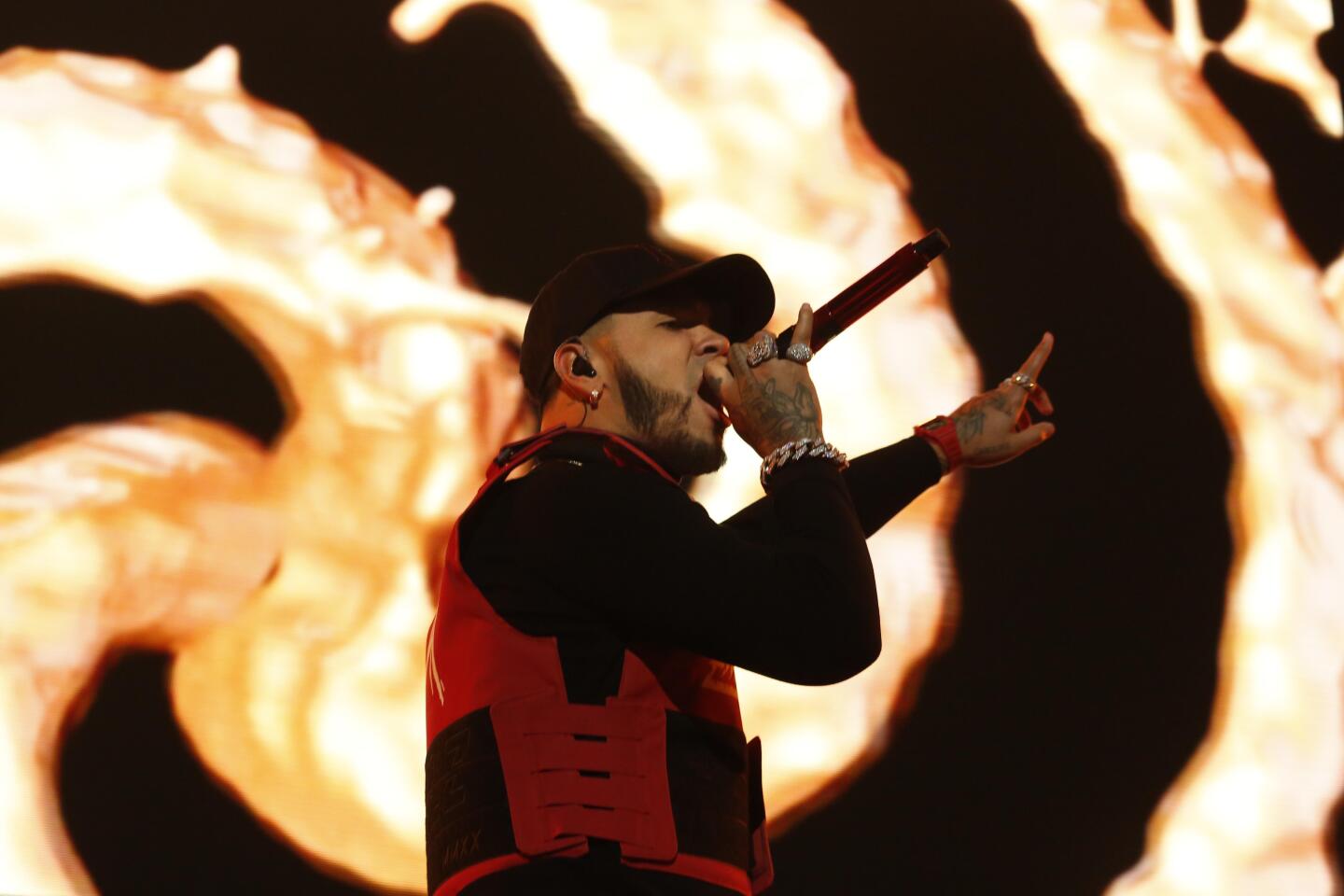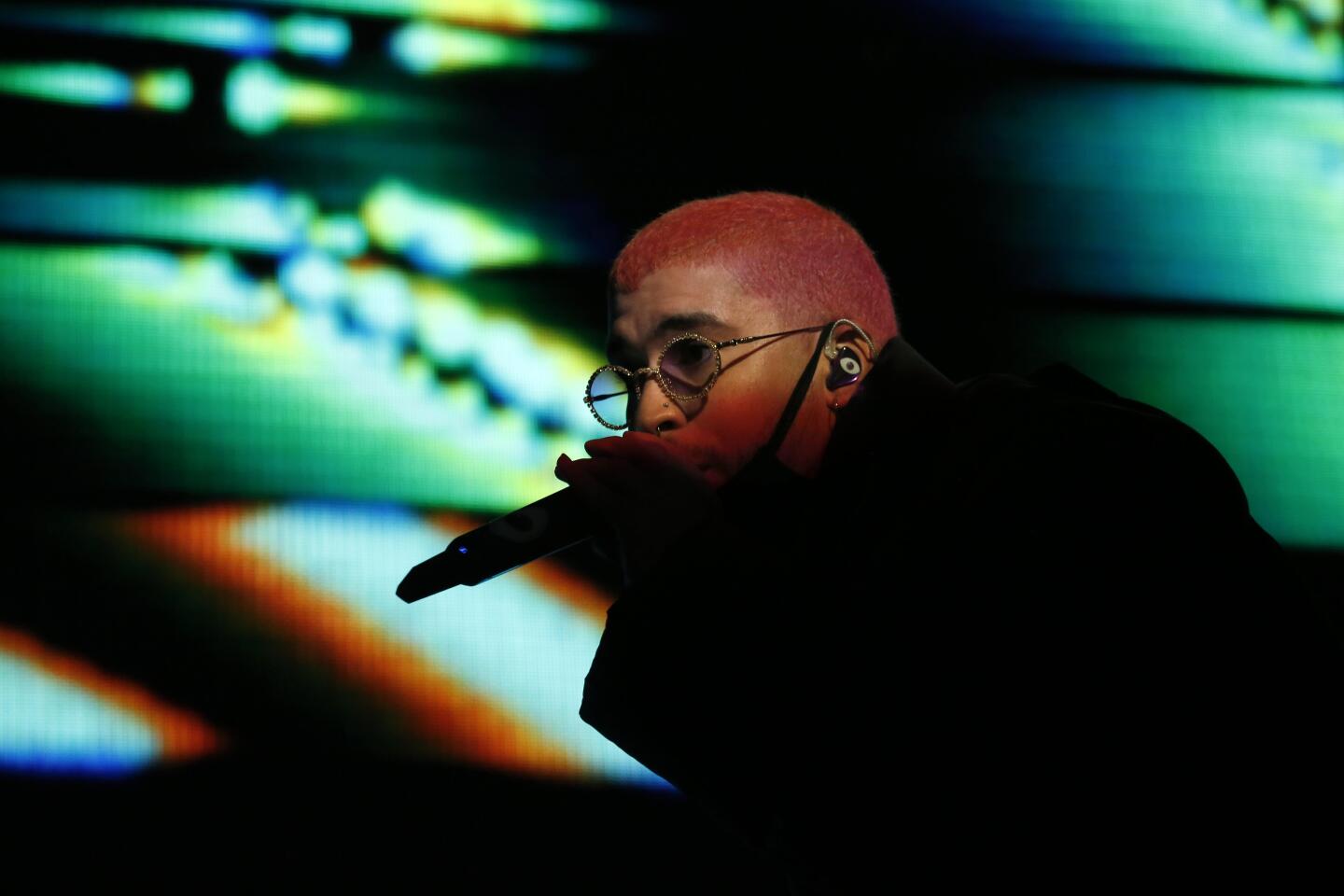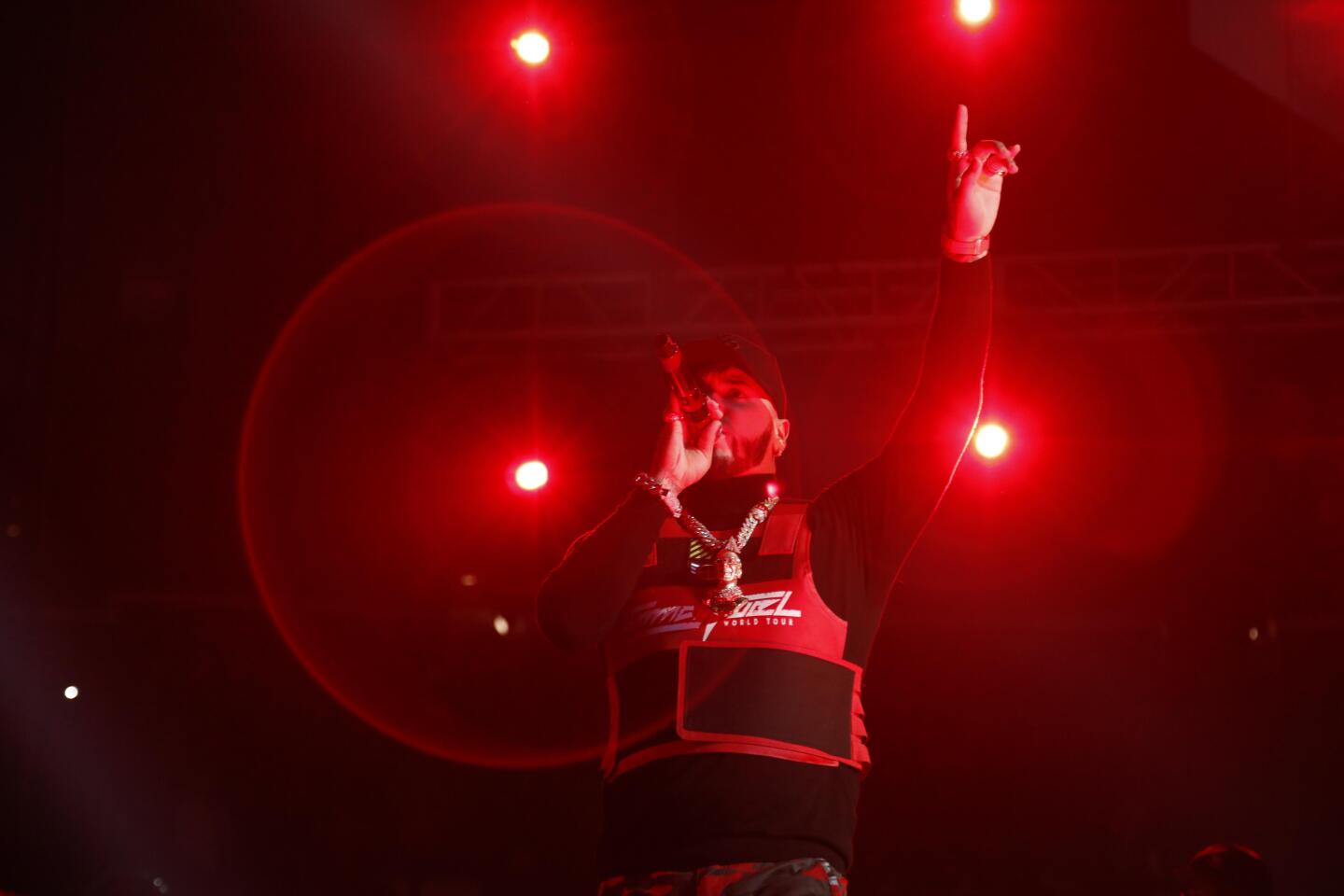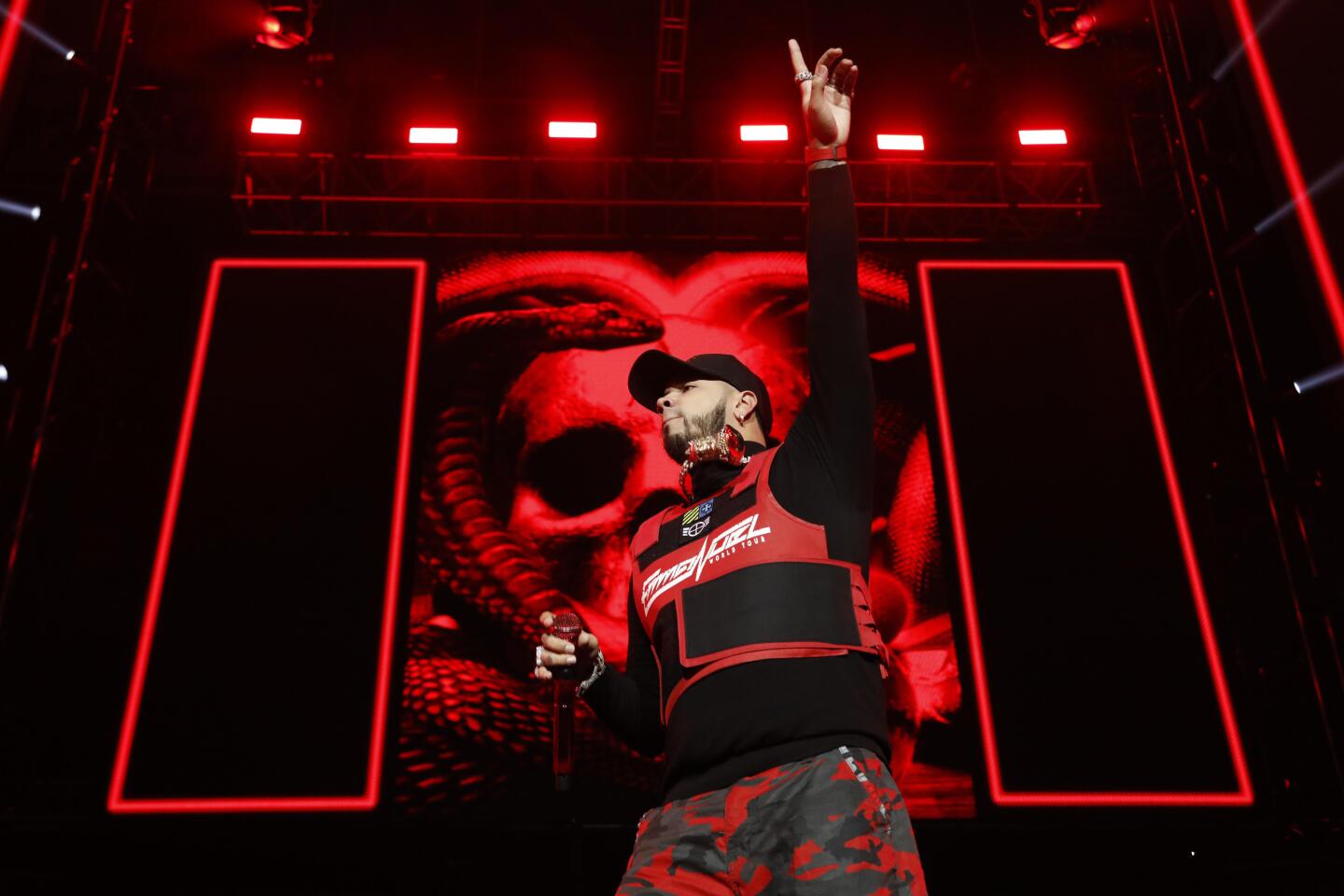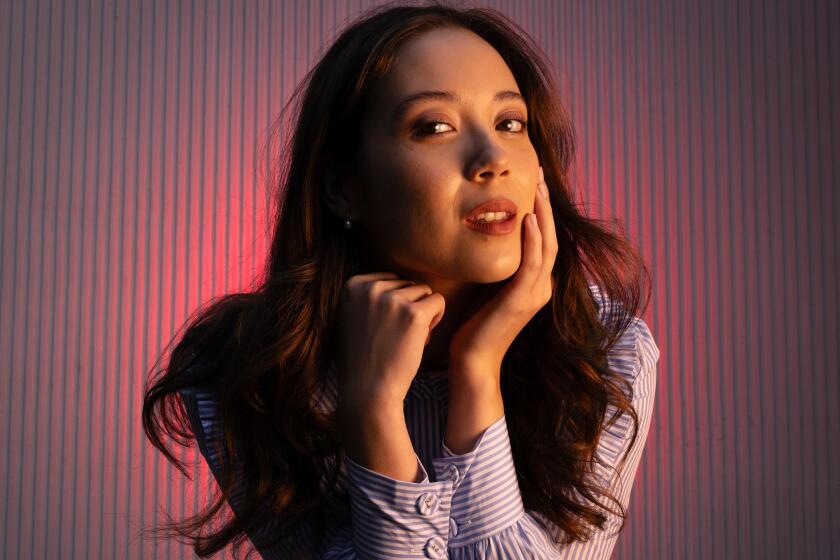Bad Bunny, Latin pop’s buoyant, flamboyant chameleon, dazzles at star-studded Calibash
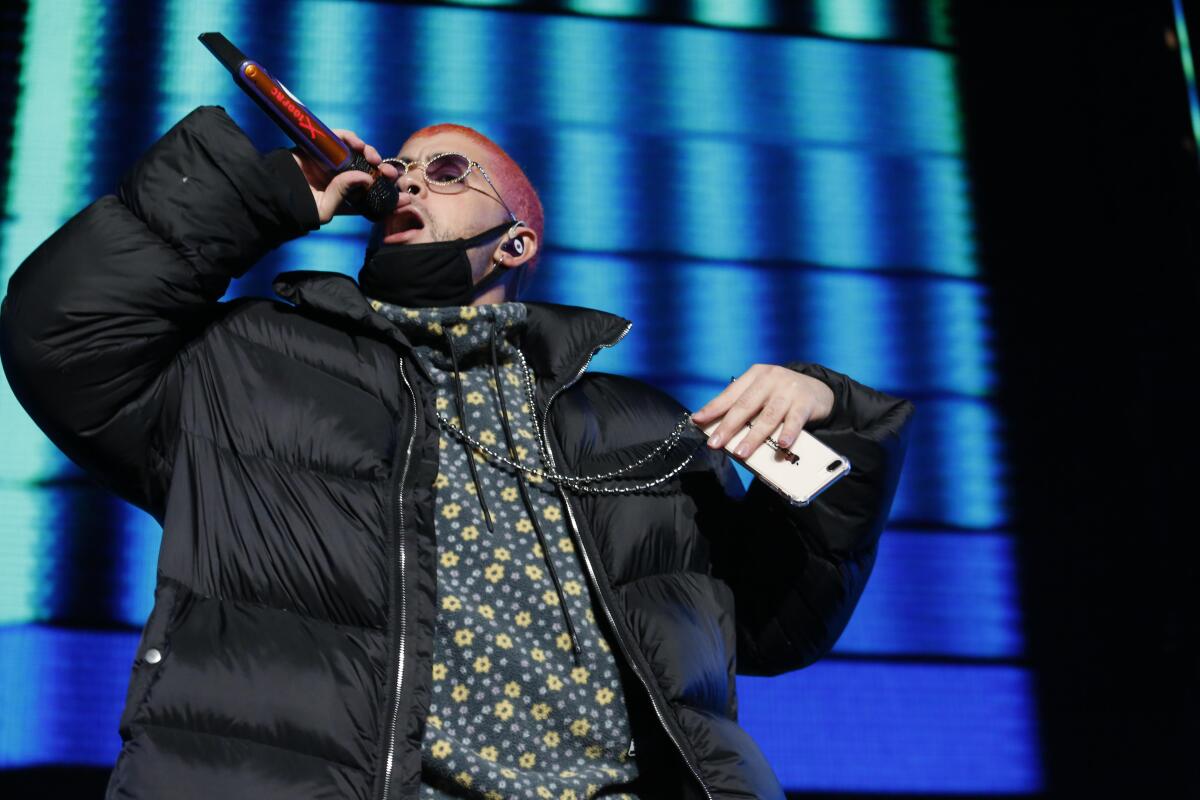
- Share via
Bad Bunny bounded onstage Saturday night at Staples Center in what looked like a very cozy pair of pajamas. Over his matching pants and shirt he wore a long, black puffy coat; his signature eyeglasses were rimmed with sparkly rhinestones. And around his neck hung a thin silver chain with an iPhone in the spot where most rappers would put a gaudy medallion.
But then Bad Bunny isn’t most rappers.
Perhaps the most exciting artist in the closely connected worlds of reggaeton and Latin trap, this 25-year-old from Puerto Rico is as beloved for his flamboyant style as he is for the many hit records that made him an obvious choice to headline Calibash, the annual all-star concert presented by L.A.’s Mega 96.3 FM.
His clothes and his brightly colored hair challenge the conventional ideas of masculinity enshrined in so much hip-hop; so too does his voice, which can flip between a low, rumbling bellow and a singsong croon so tender it hurts.
For all his appealing eccentricities, though, Bad Bunny understands the value of a propulsive beat and an addictive melody. There’s an essential sturdiness to his music — from his smash collaborations with the likes of Cardi B (“I Like It”) and Drake (“Mia”) to the flirtations with emo and ’80s R&B on his Grammy-nominated debut album, “X 100PRE” — that explains why he’s become a leading figure in the recent boom in this country of Spanish-language pop.
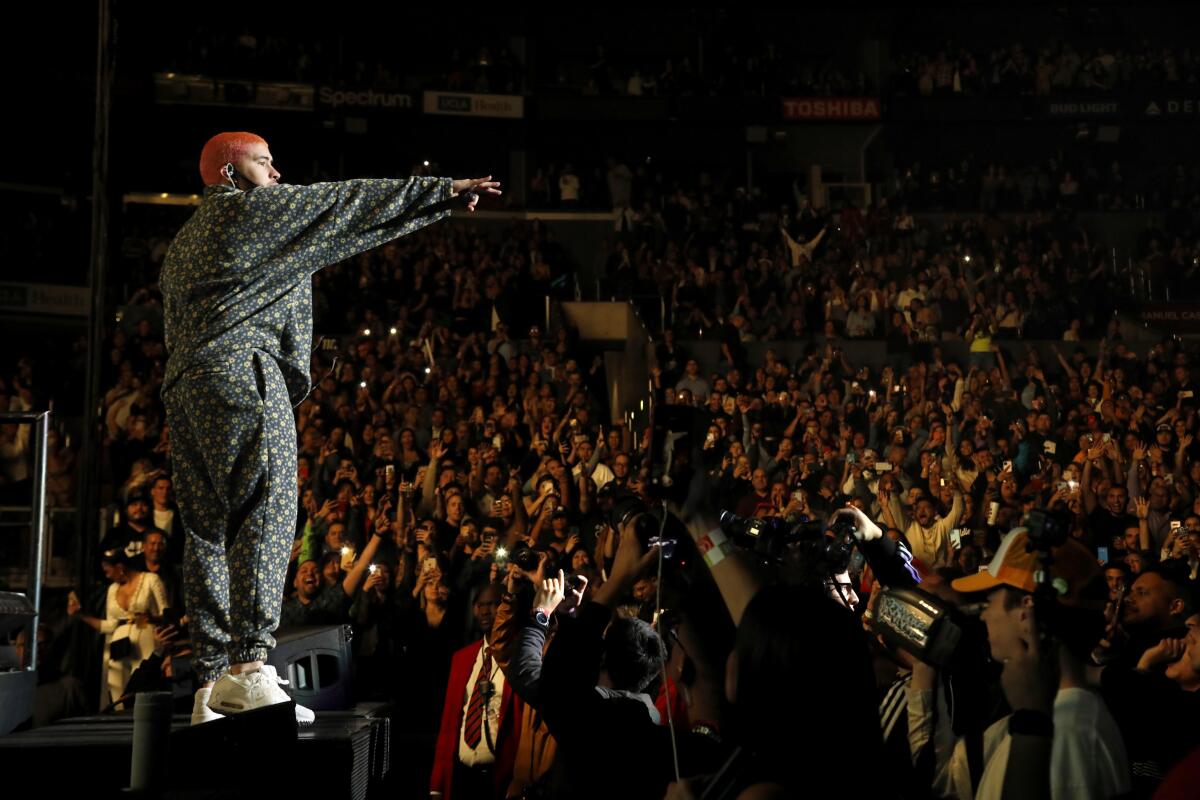
On Saturday, instead of asking people to wave their illuminated phones as he sang his ballad “Caro,” he simply reached for the one dangling against his chest and demonstrated what he wanted them to do — a practical application for such a left-field wardrobe flourish.
Bad Bunny wasn’t the only prominent weirdo at Calibash, which also featured Rosalía, Anuel AA, Karol G and Lunay, among others. (The sold-out show was due to repeat Sunday at Staples before moving to Las Vegas with a slightly different lineup on Jan. 25.)
Spain’s Rosalía, who’s up for best new artist at this month’s Grammys ceremony, married sleek electronic grooves to the fluttering acoustic guitars of her country’s enduring flamenco tradition. The music felt modern and classic at the same time; her breathy singing channeled an ancient desperation even as it nodded to the influence of Bjork and Aaliyah.
After “A Palé,” which rode a buzzing bass line and a harsh, machine-like beat, Rosalía sang a cappella for a few minutes, handily demonstrating her impressive range — if also seeming to lose the attention briefly of an audience that clearly had come to party. (Among those watching with interest was Kylie Jenner, who took in the set from the side of the stage and later posted a photo on Instagram showing the two women intertwined on a dressing-room sofa.)
But then the singer did “Yo x Ti, Tu x Mi,” with its irresistible dembow rhythm, and her global hit “Con Altura” as a bank of electric fans blew her long hair in true pop-diva fashion. It was a careful blend of novelty and familiarity.
Karol G, from Colombia, drew an enthusiastic response with broader-stroked tunes that prioritized sweeping choruses over particularly nimble rhythms; later, her fiancé, Puerto Rico’s Anuel AA, finished his somewhat business-minded performance by inviting Karol G back onstage for “China,” their chart-topping Latin-pop hit that repurposes Shaggy’s lightly comic “It Wasn’t Me.”
Alex Sensation, who hosts a popular weekday mix show on Mega — one component of the station’s ratings battle with a similarly formatted newcomer, Cali 93.9 — brought out a series of unannounced guests: De La Ghetto and Arcángel, two thirtysomething reggaeton veterans still widely admired in spite of how quickly this music moves; the Black Eyed Peas, who surmised that this was a crowd that wouldn’t mind hearing the decade-old “I Gotta Feeling”; and Tyga, the deeply opportunistic L.A. rapper who of course performed “Go Loko,” “Loco Contigo” and his cringe-y take on “Macarena.”
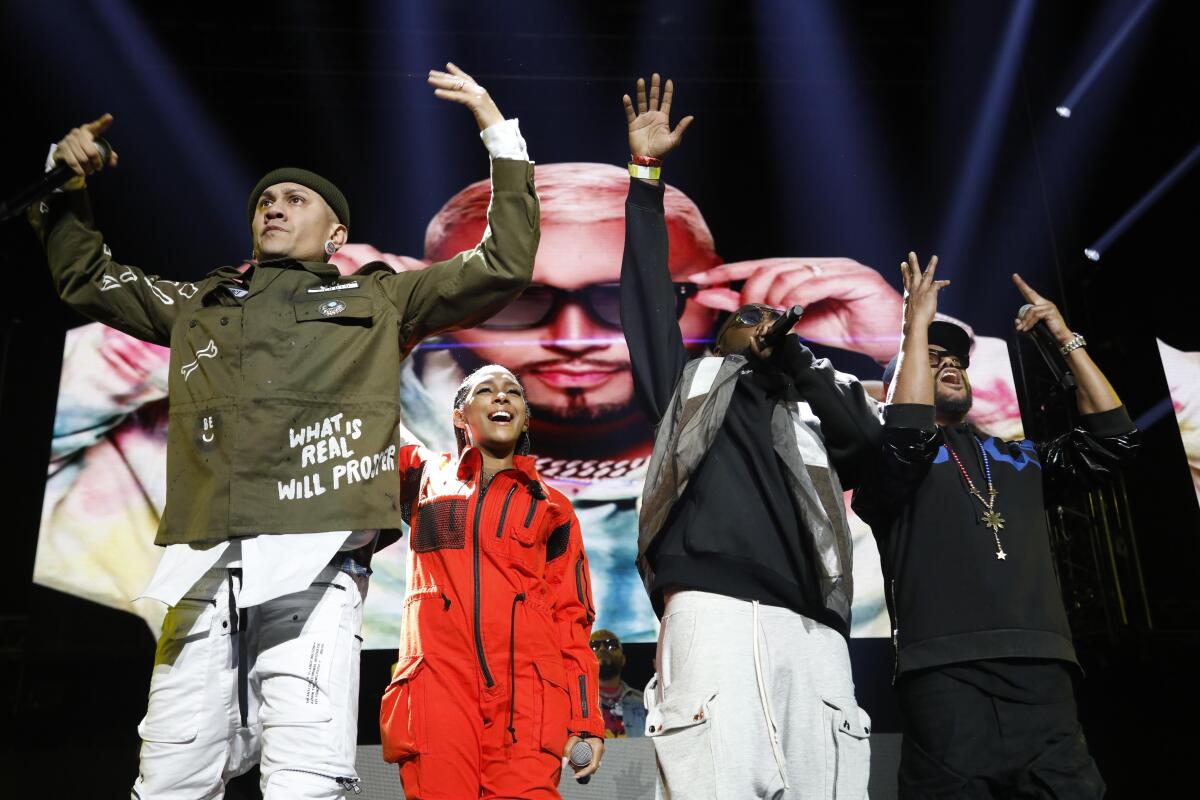
Nearly three years after Justin Bieber famously hopped on a remix of “Despacito” — the first Spanish-language song to top Billboard’s Hot 100 since “Macarena” in 1996 — Tyga offers proof that English-speaking acts have grown no less eager to borrow a vaguely defined Latin vibe.
Fortunately, our thinking about pop music and cultural ownership has progressed to the point that most fans would rather hear the real deal over a clumsy approximation — even (or especially) when the real deal is as effortlessly idiosyncratic as Calibash’s headliner.
Here, Bad Bunny moved freely among uptempo party songs and moodier numbers about thwarted romance. Yet both sported textural and lyrical detail — as in a hypnotic thumb-piano riff or a line about how an ex’s body now leaves him cold — to match his super-specific look and vocal approach.
Occasionally he’d slide his bedazzled glasses to the top of his head like a professor who might go on to forget where they were. But there was nothing absent-minded about Bad Bunny on Saturday. He was totally dialed in.
Ten albums from 10 countries: In the streaming decade, great Latin music is easier than ever to discover, from Puerto Rico to Spain to Cuba.
More to Read
The biggest entertainment stories
Get our big stories about Hollywood, film, television, music, arts, culture and more right in your inbox as soon as they publish.
You may occasionally receive promotional content from the Los Angeles Times.

